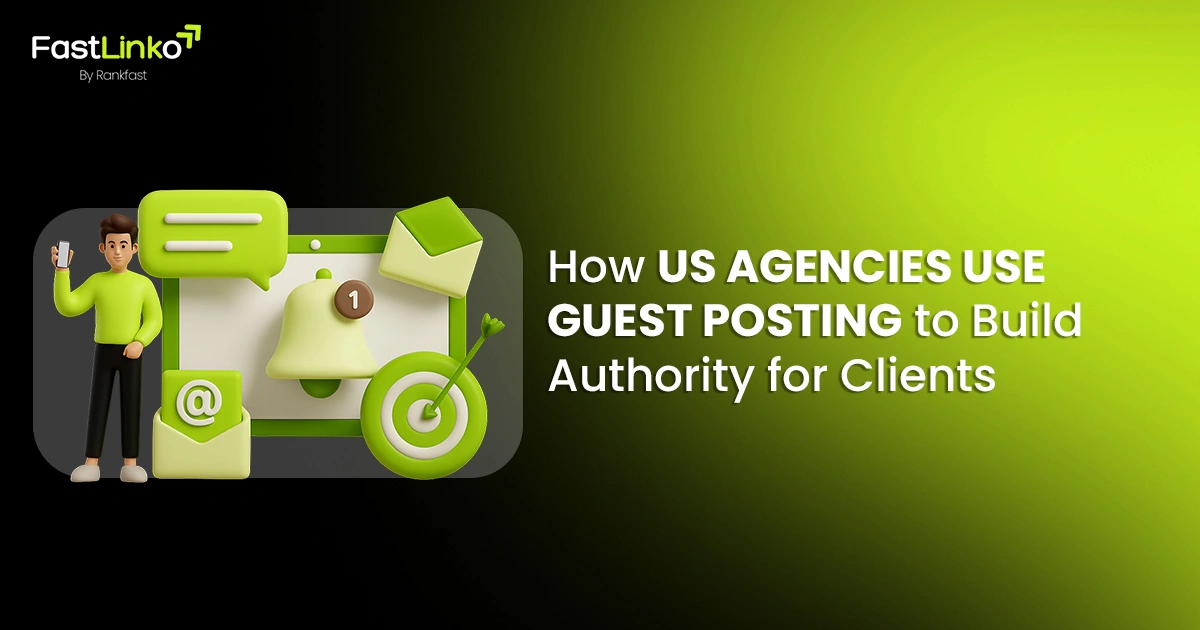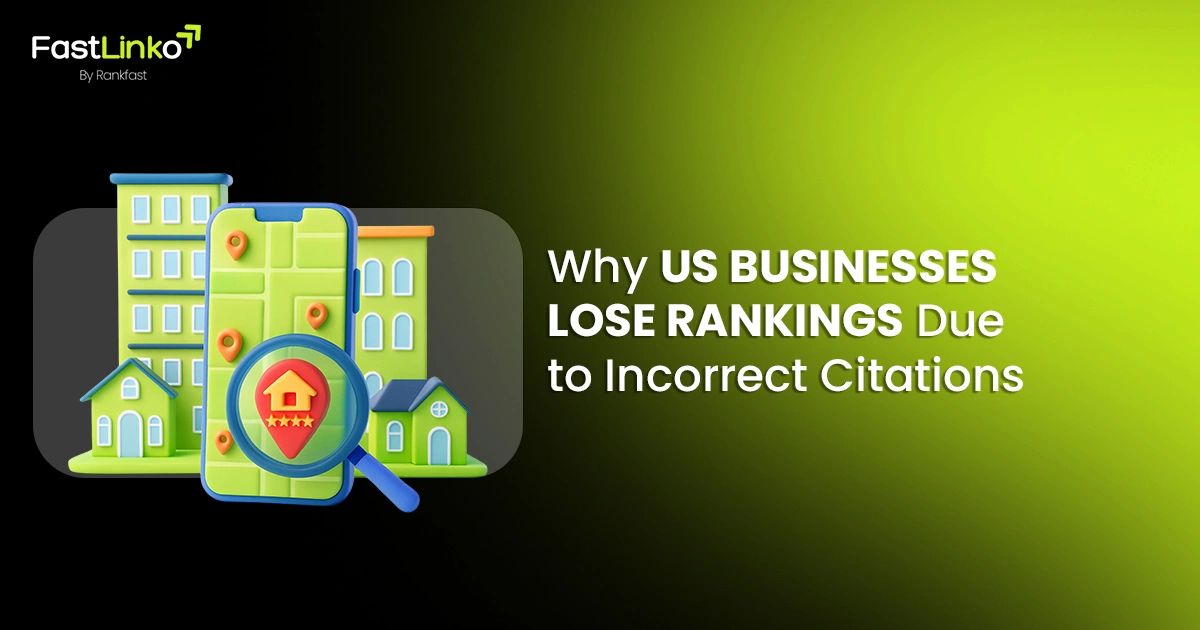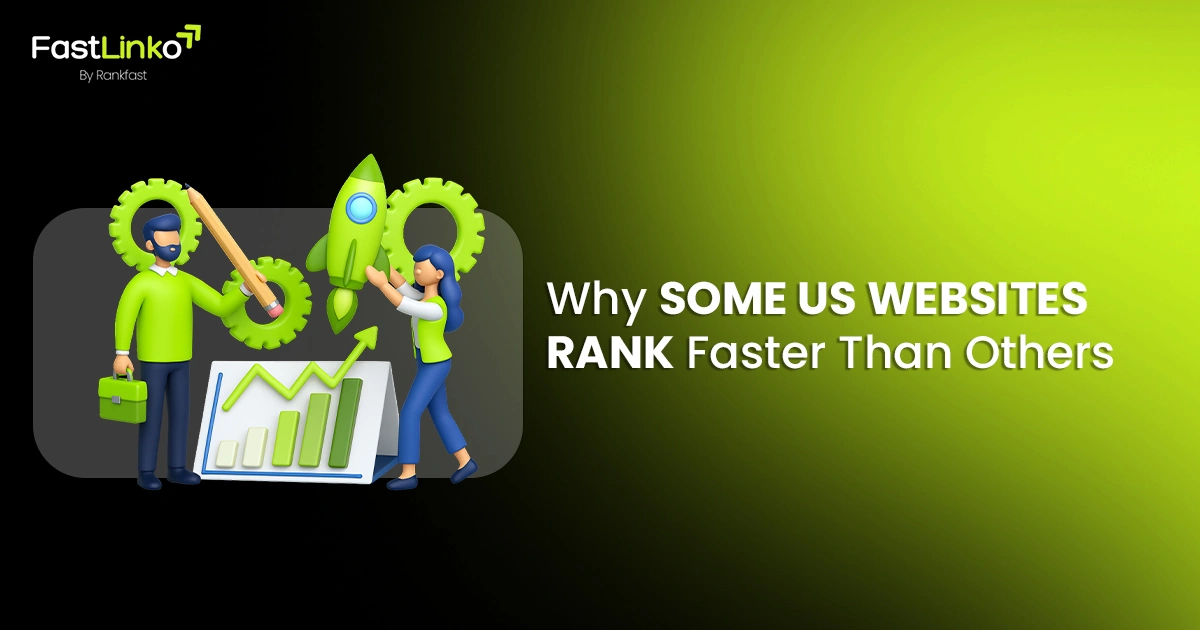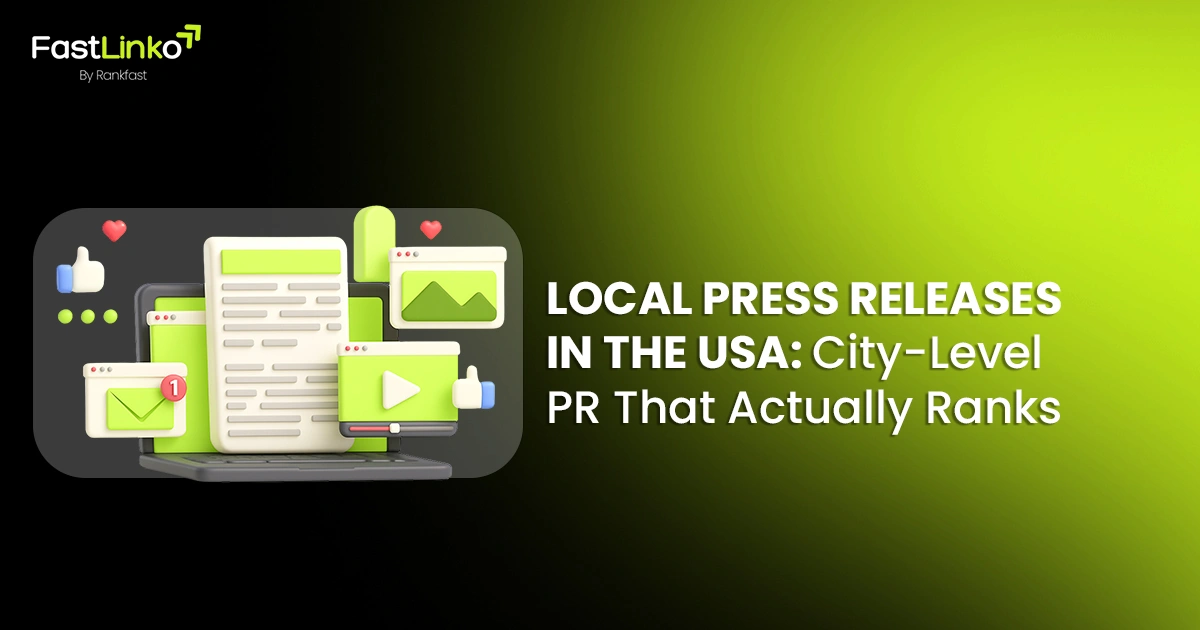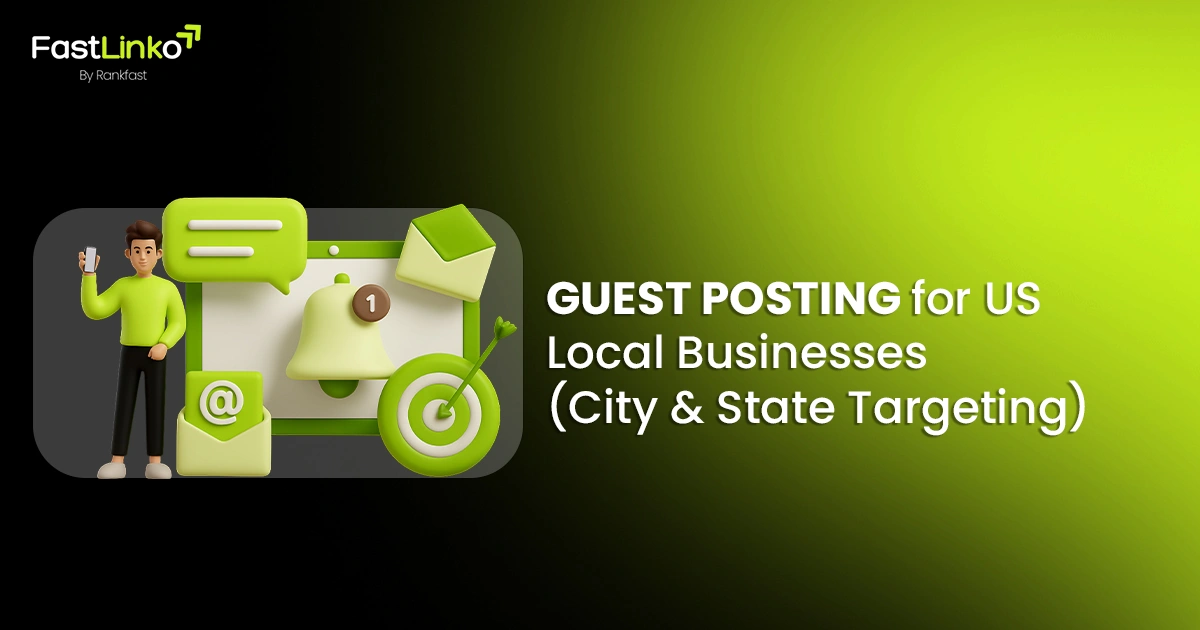
Why AI & Personalization Are The Future Of Content Marketing In 2025
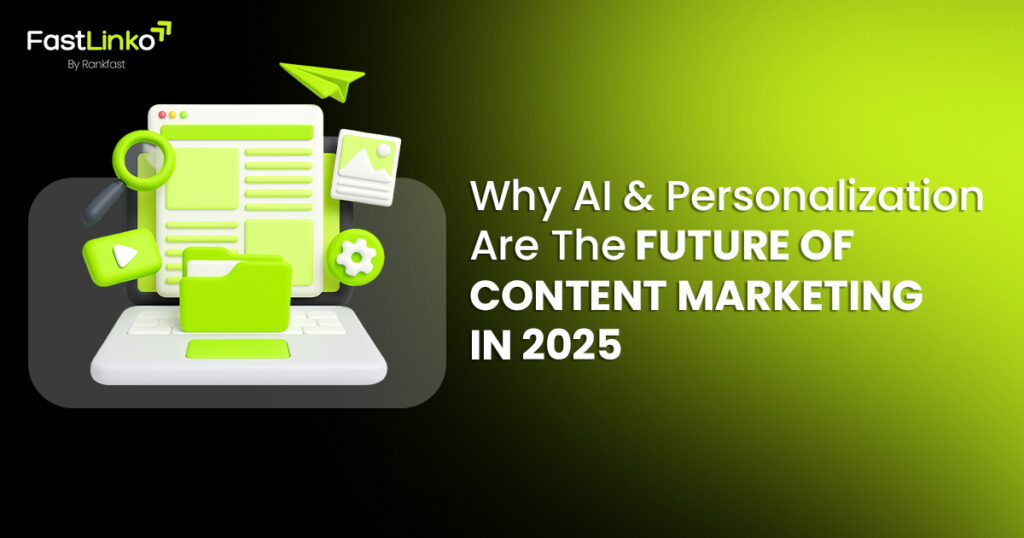
About Author
Recent post
Why US Businesses Lose Rankings Due to Incorrect Citations
Why Some US Websites Rank Faster Than Others
Local Press Releases in the USA: City-Level PR That Actually Ranks
Guest Posting for US Local Businesses (City & State Targeting)
Categories
Most businesses presume content marketing & SEO services are a game of volume. They think publishing more blogs, posting more videos and updating social media regularly will get more traction online.
But in 2025, that approach no longer works.
The internet is already saturated with content. People don’t need more information, they need the right answers at the exact moment of search. Content matters only if it answers user’s queries exactly when they try to find it.
Many brands fall short at this. They attract visitors, but fail to engage or convert clients because their content feels generic. The CTA gap isn’t in traffic, it’s in relevance.
Low value-content doesn’t rank on SERPs anymore. Search engines focus on content that answers specific queries, offers insights, and is mapped to the user’s journey.
This article explores how B2B content marketing services are evolving in 2025. Let’s look at three shifts shaping the landscape: intent-based AI search, personalized user experiences, and content structure formats that convert leads.
How AI Is Rewriting SEO?

SEO is no longer about repeating keywords or producing content in bulk.
Today, SEO is about creating and fostering user intent. It is how AI interprets your content’s digital signals.
Search engines and AI assistants have stopped using literal word matches as an SEO tool. Instead, they map the meaning, context, and relationships of your digital identity and content across millions of data points. A single mention of your business across trusted platforms, case studies, or niche forums can carry more weight than dozens of generic backlinks. B2B content marketing services are also embracing these changes.
Search engines, AI assistants, and recommendation systems check content based on 3 core factors: credibility, relevance, and problem-solving. Here’s how they work:
Credibility:
Mentions of your business across reputable sites, case studies, and industry platforms impact online positioning and traffic way more than traditional backlinks. Mentions on trusted websites, industry portals, case studies, and niche forums are way more valuable than a score of generic backlinks. AI systems aggregate these mentions and create a network of verified trust signals that affects SERP rankings.
Semantic Relevance:
Vague search terms fail to capture the essence of queries. Content must be created to address specific user needs, considering their stage in the buyer journey. AI-powered content creation analyses the meaning behind a user’s queries, mapping content to the user’s intent. It measures if your content directly addresses the user’s question or intent at the exact moment of search or not. Contributions that clearly answer contextual questions earn more prominence in search and recommendations.
User Value:
AI crawls and indexes your content if it helps users in decision-making, solving a problem, or taking any action. Quality content like high-level guidance, frameworks, or actionable examples consistently outperform descriptive or vague texts.
For businesses, the introduction of modern content marketing SEO services is a fundamental shift. Optimising your content only for broad keywords or volume makes sure your content cannot reach the target audience.
How AI Shaped Content Marketing

- From Tasks To Strategic Decisions:
Initially, AI only automated tasks like posting blogs or suggesting topics. Now, it can offer actionable insights, as well. AI tools can show which content drives engagement, generates leads, or strengthens brand credibility. This allows management to make data-backed marketing decisions. - Focus On Real Intent:
AI-powered content creation identifies what potential clients are actually looking for. Instead of targeting broad and vague terms, hyper-personalization in content is used to address particular questions relevant to any client’s stage in the decision-making process. - Improves Content Structure:
AI and LLMs can easily assess the readability, flow, and clarity of your content. With AI, you can easily develop content that tops rankings without wasting time, effort or resources. Well-structured content not only engages readers, it also signals credibility to search engines and boosts visibility in competitive markets. - Personalization At Scale:
With AI, content can be customised automatically for different business segments, geographies, or customer types. This helps maintain content relevance without increasing any operational overheads for your business. - Continuous Learning From Performance:
AI monitors which content translates to inquiries, proposals, or conversions. With AI assistants and dashboards, managers can easily adjust their marketing strategy. With accessible and impactful insights on what works, improving ROI for content campaigns becomes simpler with AI. - From Quantity To Meaningful Engagement:
The content strategy focus has shifted from publishing more content to delivering content that informs, persuades, and builds trust.
Businesses leveraging AI now reach the right audience with precise and effective content, not aggressive marketing and volume.
Personalization And Content Marketing

One of the biggest factors for evolving content marketing & SEO techniques is the increasing complexity of digital identities.
As a result, personalization has moved far beyond inserting a name or phone number. In 2025, it’s about content that understands who the reader is. Content Marketing now understands viewers’ industry, role, location, and where they are in the decision-making journey.
Every blog, report, or case study should feel customised to your readers. Content should directly address the reader’s challenges, answer their questions, and guide them towards actionable solutions, modeled for their exact context.
Why Personalization Matters?
66% consumers expect brands to understand their needs and provide them with a personal experience. The following reasons explain why personalized content marketing is rapidly gaining popularity:
- Relevance Over Reliability
Content that delivers direct and informative answers earns consistent visibility and trust. The quality of content matters way more than its publication.
Today, search engines and AI assistants do way more than just check backlinks or domain strength. They measure if content actually solves a user’s problem at the precise time of search. A hyper-personalized whitepaper on a finance manager’s compliance challenges can easily outrank a generic “top CRM” list, even from a leading website.
- Personalized Content Builds Trust
Personalized content examines a reader’s role, industry, and stage in the buying journey.
This background knowledge shows an understanding of their real challenges. Case studies, guides, and practical reports don’t just inform the stakeholders of your brand’s performance, they build trust and create meaningful connections for better engagement.
- Hyper-personalization Induces Competitiveness
Content must keep adapting to user behaviour, industry trends, and regional differences.
Personalized content marketing must use the latest updated data or regulatory changes to remain relevant with recent industrial developments. Adapting ensures your content strategy stays impactful. It also gives your brand a competitive edge over companies relying on static, average content.
- User Intent And Engagement
Content must aim to answer personalized questions & provide value to its viewers.
By anticipating user needs and sharing practical guidance, brands help prospective clients make decisions faster. This makes content easier to find, encourages engagement, and positions the brand as a trusted partner. This approach turns personalization from a routine task into a strategic tool.
Nowadays, content succeeds when it speaks to the readers and their needs. Every article, report, or case study should feel like it’s made for them.
With evolving SEO techniques and services, let’s look at why AI and personalization are becoming the driving forces in content marketing in 2025.
AI & Personalization – The Future Of Content Marketing

Readers don’t scroll for long explanations anymore. They want answers at first glance.
AI-driven search and assistants have started to filter content by how closely it fits user intent, instead of keyword stuffing. Affordable content marketing services like Fastlinko understand the role of AI and Personalization in your content strategy and offer solutions catered to your needs.
In the ever-changing SEO industry, adhering to the evolving norms is no longer optional. It’s the only way for content to appear relevant and timely.
While generic blogs vanish, content mapped to user journeys gets surfaced and remembered consistently. Let’s see how AI and Personalization affect the future of content marketing in 2025.
1. AI in Content Creation & Distribution
AI is no longer just automating tasks, it’s shaping content strategy. There are many tools for brands to stay ahead of the competition.
Predictive analytics identifies upcoming topics before they trend. AI also structures content for readability, optimises semantic keywords, and ensures context alignment. AI also automates content distribution. It can be auto-published across blogs, LinkedIn, newsletters, and even repurposed into micro-formats.
AI overtakes manual labour in content development and marketing, relieving marketers to focus on originality and tasks that require immediate attention.
2. Rise of Hyper-Personalization
Personalization has evolved from token gestures like using name, phone numbers and birth dates, to hyper-context.
Content now adapts by industry, role, region, and buyer’s journey stage. Blogs, newsletters, and LinkedIn posts can easily be edited to match each reader’s priorities. For the B2B sector, specific case studies outperform generic “best practices” lists. In today’s time, personalization can be used as both a trust builder and a retention tool.
3. Competitive Edge for SMBs
AI levels the field for smaller businesses. Earlier, only firms with content teams could scale their marketing. Now small teams can reach the same level with AI-powered services. Affordable tools offer precise targeting, vernacular personalization for regional audiences, and even voice-search optimization in local languages. This connectivity and precision beats mere mass-communication.
Instead of publishing 50 blogs a month, a well-personalized report in Hindi, Gujarati, or Tamil can generate higher conversions in local markets than a hundred generic English posts.
The winning strategy is not more content, it’s smarter content.
Brands that combine AI’s predictive power with human-led personalization rank higher, retain users longer, and convert faster.
Key Takeaways
Content marketing SEO services are no longer about churning out volume. They’re about crafting precision.
The real winners in this SEO race are going to be brands that use AI-powered content creation to decode user intent and offer answers exactly when they’re needed. Layering this accuracy with hyper-personalization confirms that your content speaks directly to the viewers and their industry, role, and stage in the buying cycle.
This shift in technology also creates both a hurdle and an opening.
The hurdle is that generic content has lost all value. The opening? Businesses now have access to affordable content marketing services like Fastlinko that make AI-driven and personalized strategies scalable.
Whether you’re a startup or a large organisation, the trick is the same: use AI to structure, optimise, and distribute content efficiently, while keeping human-driven personalization at the core.
In this new era, B2B content marketing services that combine intelligence with empathy won’t just rank higher, they’ll build trust and lasting digital visibility.
FAQs
What does personalized content marketing mean?
Personalized content marketing means adapting your content to the target viewer’s role, industry, location, or behaviour. Instead of generic blogs or emails, readers see content that feels written for their exact circumstances, improving engagement and trust.
How is AI helpful in content marketing?
AI in content marketing helps brands create, organise, and deliver content faster. It can suggest topics, personalise messages for different audiences, and analyse performance data. Using AI makes campaigns more relevant, efficient, and effective without wasting time or resources.
What is the future of personalization?
The future of personalization is about making experiences feel unique for every person. With AI, content will adjust in real time to the user's habits and needs, while still protecting privacy and focusing on relevance instead of generic messaging.
Can AI replace humans in content marketing?
AI can automate and simplify research, generate drafts, and personalise content at large scales. But it cannot replace human creativity and emotions. The best results in content marketing come from combining AI efficiency with human storytelling.
Why are AI and personalization the future of content marketing?
AI spots and creates patterns whereas personalisation makes them human. Together, they both assure that content reaches the right people at the right time. AI and personalisation play a big role in building trust, improving search visibility, and keeping a brand relevant in a crowded digital space.
- Your cart is empty Browse Shop
DISCUSS NEW PROJECT OR JUST TO SAY HELLO GET IN TOUCH WITH US
info@Fastlinko.com
+91-9990725969
200 Park Home Avenue
M2R 1A2 North York, ON, Canada
© Fastlinko 2025 . All rights reserved, Rankfast



